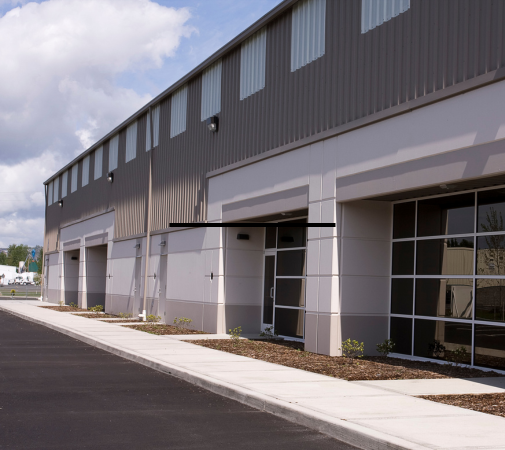Introduction
Choosing the right paving solution for commercial properties is crucial to ensure the longevity, safety, and appearance of the property’s outdoor areas. As the first impression for potential clients and customers, a well-maintained and aesthetically pleasing exterior can significantly impact a business’s success.
When it comes to paving options, asphalt is often the preferred choice for many commercial property owners and managers. This is due to its numerous advantages over other materials such as concrete or gravel.
Asphalt offers exceptional durability, with the ability to withstand heavy traffic and extreme weather conditions. Its flexibility allows it to adapt to changes in the underlying ground, reducing the risk of cracks and other damage. Additionally, asphalt’s smooth surface provides a comfortable and safe driving and walking experience.
Cost-effectiveness is another significant factor favoring asphalt paving. It is generally more affordable to install and maintain compared to alternatives. Asphalt also provides quick installation and curing times, minimizing disruptions to business operations.
Furthermore, the dark color of asphalt absorbs and retains heat, making it ideal for colder climates, as it helps to melt snow and ice faster. This contributes to improved safety conditions, preventing slips and falls.
Considering all these factors, asphalt paving offers commercial property owners and managers a reliable, cost-effective, and visually appealing option for their outdoor areas. Examining the advantages and important factors of asphalt paving will empower them to make informed decisions to meet their specific paving needs.

Benefits of Asphalt Paving for Commercial Properties
- Durability and Longevity
One of the key advantages of asphalt paving is its exceptional durability and longevity, which makes it ideal for commercial properties that experience heavy traffic and extreme weather conditions.
Asphalt has the ability to withstand heavy loads without cracking or deteriorating. Its flexible nature allows it to adapt to the weight of vehicles, preventing the formation of cracks and potholes. This makes it particularly beneficial for parking lots, driveways, and roadways that experience high volumes of traffic on a daily basis.
Additionally, asphalt is highly resistant to extreme weather conditions. Whether it’s scorching hot summers or freezing cold winters, asphalt pavement retains its integrity and does not easily warp or crack. Its ability to expand and contract with temperature fluctuations makes it highly durable and minimizes the need for frequent repairs or maintenance.
Furthermore, asphalt is a low-maintenance option that requires fewer repairs and replacements compared to other paving materials. With proper installation and regular sealcoating, asphalt pavement can last for decades, providing a cost-effective solution for commercial property owners or managers.
In conclusion, the durability and longevity of asphalt make it an excellent choice for commercial properties. Its ability to withstand heavy traffic and extreme weather conditions ensures a long-lasting and cost-effective paving solution for years to come.
- Speed of Installation
One of the significant advantages of opting for asphalt paving for commercial properties is its quick installation process. Unlike other types of paving options, such as concrete, asphalt can be installed relatively faster, minimizing the downtime for businesses.
The speed of installation with asphalt paving is primarily due to its material characteristics. Asphalt is a flexible and versatile material that can be quickly prepared and applied to the desired surface. It can be easily mixed and laid on the pavement, allowing for efficient and swift completion of the paving project.
This rapid installation process of asphalt paving is especially advantageous for commercial property owners or managers who cannot afford to have their parking lots or driveways out of commission for an extended period. With asphalt, the businesses can resume their operations and accommodate their customers or tenants within a shorter timeframe.
Moreover, the quick installation of asphalt paving translates into cost savings for businesses. The reduced downtime means less disruption to daily operations and potential loss of revenue. Additionally, asphalt’s speedy installation process eliminates the need for extended construction periods, which can lead to additional expenses.
Overall, the speed of installation is a crucial consideration when opting for asphalt paving for commercial properties, ensuring minimal disruption, cost efficiency, and timely completion of paving projects.
- Visual Appeal
A well-paved, smooth asphalt surface can have a significant impact on the visual appeal of a property. It instantly enhances the overall aesthetic of the area and creates a positive first impression for visitors or potential tenants. The sleek and uniform appearance of asphalt gives a professional and well-maintained appearance to the property. Unlike alternative materials, such as gravel or concrete, asphalt provides a seamless and consistent surface that adds a touch of elegance to any commercial property.
The smoothness of asphalt not only enhances the property’s visual appeal but also ensures a safer environment for pedestrians and vehicles. A bumpy or uneven surface can be a significant drawback, potentially causing accidents or injuries. An asphalt pavement eliminates such hazards, providing a safe and comfortable surface for both pedestrians and vehicles.
Furthermore, the dark color of asphalt adds depth and contrast to the surrounding landscape, making the property more visually appealing. Whether it’s a shopping center, office building, or any other type of commercial property, a well-paved asphalt surface contributes to the overall attractiveness and curb appeal.
In conclusion, the visual appeal of a property can greatly benefit from the installation of a well-paved and smooth asphalt surface. Its sleek appearance, safety benefits, and ability to enhance the surrounding landscape all contribute to creating an inviting and visually pleasing environment for residents, clients, and visitors alike.
- Safety Features
Asphalt paving offers numerous safety features that make it an ideal choice for commercial property owners or managers. One of the main advantages of asphalt paving is its ability to enhance safety by providing better vehicle traction. The smooth and even surface of asphalt allows vehicles to have better grip, reducing the risk of accidents and skidding, especially in wet or icy conditions. This improved traction is crucial in areas with heavy traffic or where vehicles need to make quick stops or turns.
Another safety benefit of asphalt paving is the reduction of splash back. When it rains, vehicles driving over unpaved or poorly surfaced areas often create a lot of splashing, which can impair the visibility of drivers and pedestrians. Asphalt paving eliminates this issue, as its smooth surface allows water to drain efficiently, minimizing splash back and improving visibility. By reducing the risk of hydroplaning and minimizing splash back, asphalt paving contributes significantly to the overall safety of a commercial property.
Overall, choosing asphalt paving for commercial properties not only enhances the aesthetics and durability of the pavement but also improves safety by providing better vehicle traction and reducing splash back. These safety features make asphalt paving a reliable and practical choice for commercial property owners or managers looking to ensure the safety of their premises and the people who use them.
Considerations Before Paving with Asphalt
- Assessing the Site and Soil Conditions
One crucial step in the asphalt paving process is conducting a professional evaluation of the site and soil conditions. This evaluation ensures that the site is suitable for asphalt paving and helps in determining the appropriate specifications for the project.
A professional evaluation involves assessing the existing conditions of the site, including the ground surface, drainage system, and soil composition. It identifies any underlying issues that may impact the durability and performance of the asphalt pavement.
The condition of the soil is of utmost importance as it provides the foundation for the pavement. Different soil types possess varying levels of stability and load-bearing capacity. A thorough analysis helps in understanding the soil’s quality, compaction, and moisture content, which are crucial factors in determining the appropriate thickness and composition of the asphalt pavement.
By conducting a comprehensive evaluation, property owners or managers can assess any potential challenges or limitations that may affect the long-term performance and durability of the pavement. It enables them to make informed decisions about necessary soil stabilization techniques or adjustments to pavement design to maximize the longevity of the asphalt surface.
In conclusion, a professional evaluation of the site and soil conditions is essential before opting for asphalt paving. It ensures that the chosen site is suitable and helps in determining the necessary specifications for a successful and long-lasting pavement solution.
- Choosing the Right Asphalt Paving Contractor
When choosing the right asphalt paving contractor for your commercial project, it is crucial to consider several key factors. First and foremost, ensure that the contractor has extensive experience specifically in commercial paving projects. This is important because commercial projects often entail larger areas and heavier traffic compared to residential projects.
Look for a contractor who has a strong track record of successfully completing similar projects within budget and on schedule. It is also essential to inquire about their expertise in managing any potential challenges that may arise during the project, such as adverse weather conditions or unexpected site conditions.
Additionally, choose a contractor who has the necessary certifications and licenses to carry out the work. This ensures that they comply with industry standards and regulations.
A reputable contractor will also have a team of skilled professionals who are trained to handle commercial paving projects efficiently. Inquire about the qualifications and experience of the contractor’s team members to ensure that they are capable of delivering high-quality results.
Finally, consider the contractor’s reputation and customer reviews. Seek feedback from previous clients and check online resources for any testimonials. This can give you a better understanding of their workmanship, professionalism, and overall customer satisfaction.
By taking these criteria into account, you can confidently select the right asphalt paving contractor for your commercial project and ensure successful completion of your paving needs.
- Maintenance Planning
Maintenance Planning for Asphalt Pavements is crucial for ensuring the longevity and durability of the surfaces. By proactively planning and implementing regular maintenance activities, commercial property owners or managers can minimize the need for costly repairs and extend the lifespan of their asphalt pavements.
Regular maintenance for asphalt pavements includes activities such as crack sealing, sealcoating, and periodic resurfacing. Crack sealing helps prevent water from seeping into the pavement layers, reducing the risk of further damage and deterioration. Sealcoating provides a protective layer on the surface, shielding it from the damaging effects of the sun, rain, and chemicals. Periodic resurfacing involves adding a new layer of asphalt to restore the pavement’s smoothness, appearance, and structural integrity.
Planning for maintenance also involves establishing a routine inspection schedule to identify and address any issues promptly. Early detection and timely repairs can prevent minor problems from escalating into major ones, saving property owners from expensive reconstruction or replacement costs.
Moreover, collaborating with experienced asphalt paving contractors who offer comprehensive maintenance services is vital. These professionals have the expertise and equipment necessary to assess pavement conditions accurately, recommend suitable maintenance measures, and execute them efficiently.
In conclusion, maintenance planning is essential for commercial property owners or managers opting for asphalt paving. By understanding the maintenance needs and taking proactive steps to address them, they can ensure the long-term durability and attractiveness of their asphalt pavements.
The Process of Asphalt Paving for Commercial Properties
The process of asphalt paving for commercial properties involves several important steps to ensure a successful and long-lasting result. Here is a step-by-step overview of this process:
1. Planning and preparation: The first step is to assess the area that needs paving and identify any specific requirements or considerations for commercial projects. This includes factors such as parking lot striping and compliance with the Americans with Disabilities Act (ADA).
2. Excavation and grading: The area is excavated to the required depth, removing any existing materials or obstacles. Grading is then done to ensure proper water drainage and a smooth, even surface.
3. Base installation: A stable base is crucial for the longevity of the asphalt pavement. A layer of crushed stone or aggregate is placed and compacted to create a strong foundation.
4. Asphalt application: Hot mix asphalt is then delivered and applied using specialized equipment. The asphalt is spread evenly and compacted with heavy rollers to create a smooth and durable surface.
5. Finishing touches: Once the asphalt is in place, any necessary adjustments or repairs are made. This includes ensuring proper slope for water drainage and addressing any cracks or imperfections.
6. Striping and markings: If the commercial property requires parking lot striping or markings for designated areas, this is done as a final step. These markings will help maximize parking space and ensure compliance with regulations.
Maintaining Your Asphalt Pavement
Maintaining your asphalt pavement is essential to maximize its lifespan and keep it in good condition. Here are some basic maintenance tips to consider:
Regular inspections: Conduct frequent inspections of your asphalt surface to identify any signs of damage or deterioration. Look for cracks, potholes, or areas with loose or uneven pavement. Catching these issues early on can prevent them from worsening and causing more extensive damage.
Seal coating: Applying a seal coat to your asphalt surface is crucial for protecting it from the damaging effects of moisture, UV rays, and traffic. Seal coating creates a protective barrier that helps to extend the lifespan of your pavement and keep it looking its best.
Prompt repairs: When you notice any cracks or potholes on your asphalt surface, it’s important to address them promptly. Ignoring these issues can lead to further deterioration and costly repairs down the line. Fill in cracks and potholes using appropriate asphalt patching materials to prevent water penetration and further damage.
Regular sweeping and cleaning: Regularly sweeping and cleaning your asphalt surface is another important aspect of maintenance. Removing debris and dirt helps to prevent them from causing friction and erosion on the pavement. Additionally, cleaning up oil spills or other chemicals promptly can prevent them from damaging the asphalt.
By following these basic maintenance tips, you can extend the lifespan of your asphalt pavement, saving money on repairs and ensuring a safe and functional surface for your commercial property.
Conclusion
In conclusion, opting for asphalt paving for your commercial property can offer numerous benefits. Its durability and flexibility make it an excellent choice for high-traffic areas, providing a long-lasting and cost-effective solution. The smooth and aesthetically pleasing finish of asphalt can enhance the overall look of your property, leaving a positive impression on customers and clients.
When considering asphalt paving, there are important factors to keep in mind. Proper maintenance is essential to prolong the lifespan of the pavement, including regular sealcoating and patching any cracks or potholes. Consulting with an experienced professional can help you navigate these considerations and ensure the best outcome for your property.
By working with a professional, you can take advantage of their expertise, knowledge, and access to the latest paving technologies and techniques. They can assess your specific needs, recommend appropriate materials, and provide reliable and efficient installation services.
Overall, choosing asphalt paving for your commercial property is a decision that can bring significant benefits in terms of durability, appearance, and cost-effectiveness. By taking the time to carefully consider your options and consult with a professional, you can make an informed decision that will serve your property well for years to come.



